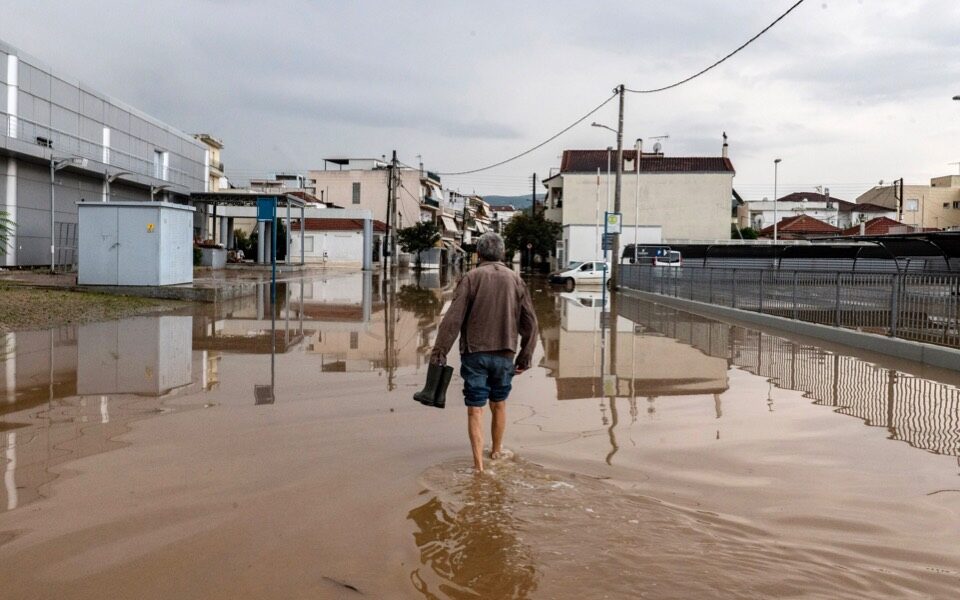Extreme weather, extreme cost

The cost Greece pays due to extreme weather phenomena is now 50 times more compared to 2013, and these are costs paid by the state, the citizens, and large and small businesses. The latter indeed paid a heavy price in 2023, especially in areas affected by extreme weather events, such as Thessaly.
In order to shield businesses from the effects of the climate crisis, it is estimated that investments in the order of 15 billion euros are required until 2030. In fact, these investments, according to a study by the National Bank of Greece, could bring net benefits of €10-40 billion by 2030.
The concern for this year has already begun, both because of last year’s experience as well as due to the very high temperatures and the occurrence of forest fires from as early as the end of March, so that more and more businesses are getting themselves insured, as well as taking proactive measures.
According to NBG, the relative costs of extreme weather events reached half a billion euros in 2021, from just €0.01 billion in 2013, while in 2023, a year of catastrophic fires and floods, extreme weather events, in addition to material damage to households and businesses, they are estimated to have contributed to an 8% reduction in domestic agricultural value added and a loss of 1.2 million tourism arrivals.
Data from the Association of Insurance Companies of Greece (EAEE) show that the damage compensated by insurance companies in the period 1993-2023 was close to €1 billion, with 2023, due to wildfires and Storm Daniel, being by far the most destructive year.
Last year cost the insurance industry €404.6 million in compensation, out of a total of €968.5 million paid out from 1993 to 2023.
From the research carried out by NBG at companies in Arta, Viotia, Evros, Evia, Evrytania, Thesprotia, Ioannina, Karditsa, Larissa, Magnesia, Xanthi, Preveza, Rodopi, Trikala, Fthiotida and Fokida, it stems that 75% of SMEs were negatively affected by natural disasters. Some 30% stated a direct blow regarding material damage, with two thirds of them having been affected in the past. An additional 42% suffered indirect disruption.





